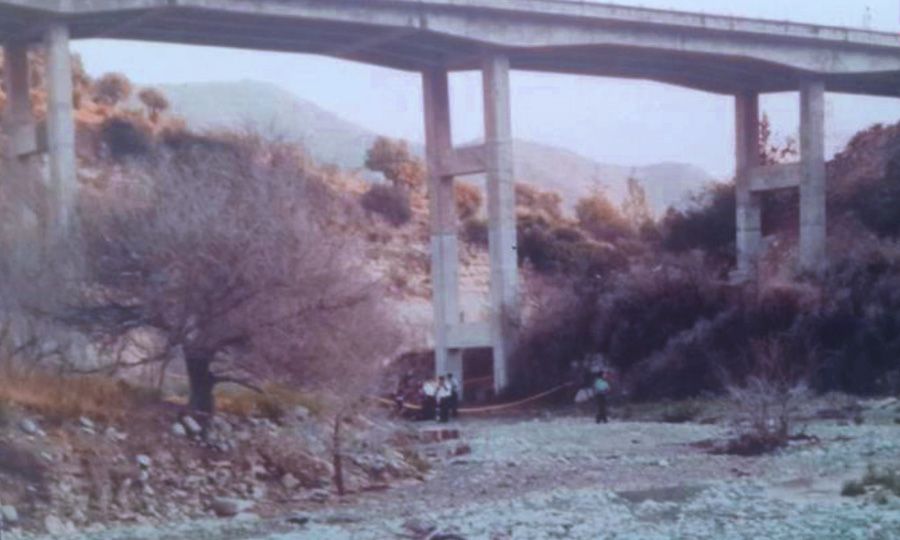
Newsroom
New forensic evidence pointing to strangulation has emerged in the 2005 death of a soldier, who was said to have committed suicide while serving in Cyprus while his family kept insisting all along that the army had covered up a crime.
After an exhumation order was granted by a Limassol district judge last December, forensic specialists representing the family of Thanasis Nicolaou, a 26-year-old conscript who was found dead under a bridge in Alassa on 29 September 2005, requested additional tests be carried out in Greece on a specific piece of bone.
The Legal department initially refused to consent to any exhumed remains being sent abroad for specialized testing, but after persistence from the family and Greek experts, permission was finally granted for the hyoid bone to be flown to Athens.
The family raised doubts over the investigation from the very beginning, maintaining all along that the young soldier was being bullied and that army officers had not been honest
According to Reporter, attorney Loukis Loucaides who represents the Nicolaou family said this week that anatomic pathologist Demetra Karayianni examined a specific piece of bone and it was determined that the soldier’s cause of death was strangulation and not suicide.
In 2006 a yearlong police investigation concluded that Nicolaou had fallen from a bridge 30 metres high and died, ruling out foul play. A state forensic pathologist, who conducted the initial autopsy at the scene, had determined the cause of death was free fall and the manner of death was suicide.
But the family raised doubts over the investigation from the very beginning, maintaining all along that the young soldier was being bullied in the army and that military officers had not been honest about many issues in the case.
Back in January 2020, the European Court of Human Rights found the Republic of Cyprus in violation of human rights in connection with the case, prompting the mother to openly accuse the state of a cover-up and demand an exhumation a month later.
Nicolaou’s mother had said the ECHR judgment reprimanding the Republic over an “inadequate investigation” was not enough and she demanded to know the whole truth.

The family in the past spoke about their son being bullied in the army and feared their loved one had been killed by other soldiers who then tried to make his death look like suicide.
Nicolaou, who grew up in Australia and had a foreign accent, was bullied according to his mother and was often referred to as “kangaroo” by the younger local soldiers.
The case made headlines late last year when Greek forensic examiner Filippos Koutsaftis was traveling to Cyprus to testify in a criminal case in Paphos. He had expressed the view that another post mortem could be significant in ascertaining once and for all whether the soldier’s bone fractures resulted from a fall on a hard surface or were caused by other factors.
The Legal department at the time had said the state was prepared to cover all testing costs on the island as well as foot the bill for travel expenses for any specialist of the family’s choosing who would monitor the procedure.
But the mother, who had openly accused the Cypriot state of a cover-up, turned to Greek experts who finally managed to put pressure on the Legal department and get the U-shaped bone to Athens for specialized tests aimed at examining more closely any laryngeal injuries and their specific causes.
According to Kathimerini Cyprus, state authorities have received the Greek report and now police are expected to consult with the Legal Department.































